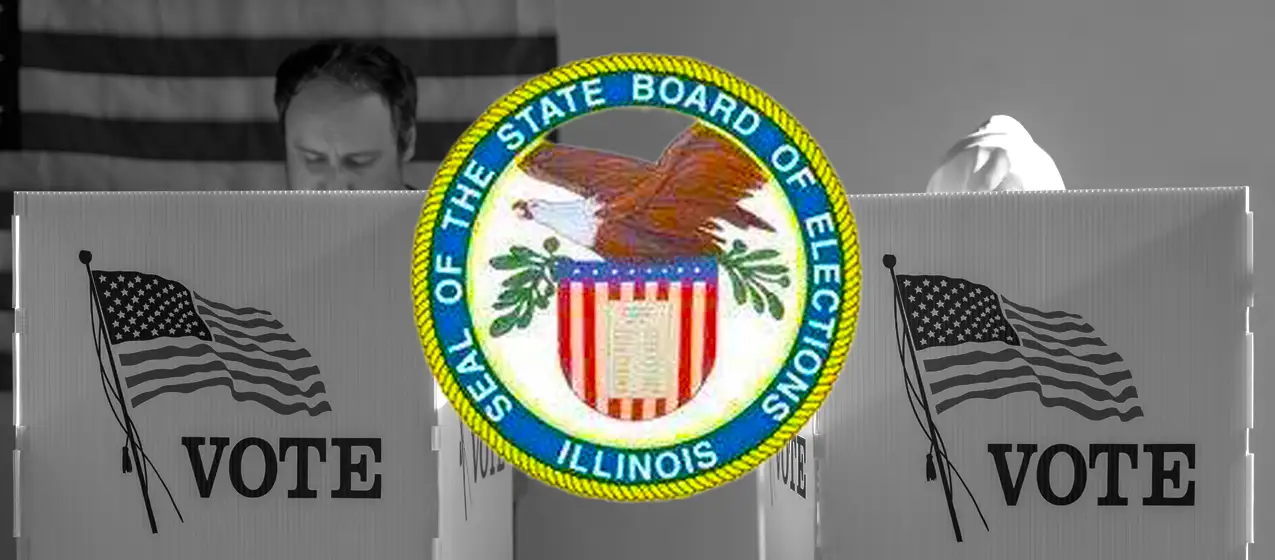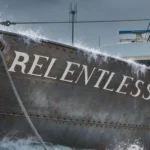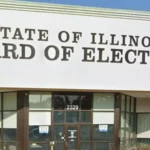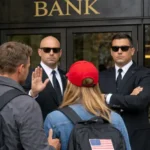
On October 8, the Supreme Court heard oral arguments for Bost v. Illinois State Board of Elections1, a case on whether federal candidates have standing to challenge Illinois election laws governing the time, place, and manner of federal elections. Plaintiffs—three federal candidates—are challenging a state law requiring Illinois election officials to count ballots mailed by Election Day if they are received within fourteen days. They argue this conflicts with federal law defining a single “election day.” Furthermore, they assert standing based on the financial harm they incur from the extended voting period, given the costs of continued poll monitoring after Election Day, and on a potential competitive injury if the margins or outcome of the races are affected.
Landmark Legal Foundation filed an amicus brief on behalf of Election Integrity Project California, Inc. in support of Representative Mike Bost and the additional candidates. We argue that the Court’s precedents in granting standing to political candidates facing injury from allegedly unconstitutional state election laws support a finding of standing. In a case from 1892, McPherson v. Blacker2, the Court adjudicated a lawsuit petitioned to the Supreme Court by a Michigan candidate against the Michigan State Secretary, asking the Court to declare the state legislation void. Although the Court ruled on the merits in favor of the Respondents, this case recognizes the Court’s assumption of standing for at least some candidate-based claims. As the doctrine was further developed, the Court established the need for candidates to demonstrate that the injury affected them in a “personal and individual way” one that distinguishes their harm from a generalized grievance. By requiring a greater degree of specificity, the Court narrowed the path for candidate challenges, emphasizing the limits of Article III standing in election law disputes, laying out the
Bost, a congressional candidate in Illinois, alleged that Illinois’s post-Election Day ballot receipt process undermined voter integrity, diluted electoral strength of those who cast ballots received by the nationwide, contravened the constitutionally-set Election Day, and imposed an unnecessary financial burden on candidates who were forced to monitor the ballot counting process throughout the post-Election Day extension. The district court dismissed the case, ruling that Bost had failed to demonstrate a concrete and particularized injury that could support the requirements of standing under Article III of the Constitution.
Bost subsequently appealed to the Seventh Circuit Court of Appeals, but in a 2-1 decision, the circuit court held that Bost had still failed to meet the burden of establishing a certain impending injury. They held this for three reasons. First, because the election had not occurred, and the voting process had not begun, Bost’s claims were speculative. Second, the Circuit rejected Bost’s argument that post-Election Day ballots would contribute to vote dilution as this constituted a generalized grievance rather than a particularized harm. Generalized harms, in accordance with Spokeo v. Robins and Hollingsworth v. Perry, could not establish standing. Third, Bost’s claim that candidates suffered direct harm through necessary campaign expenditures such as ballot counting and monitoring were dismissed as self-imposed harms. The Circuit Court cited Clapper v. Amnesty International USA, which held that parties cannot manufacture standing through voluntary expenditures for speculative injuries. This ruling created a split in the circuit courts, which usually indicates that the Supreme Court will intervene.
The ruling in this case could have significant implications for state election laws if the rulings against Bost are upheld because of other precedents about how challenges to election laws can proceed. One of the complicating factors in challenges like this one is the longstanding Purcell Principle, named for Purcell v. Gonzalez, which articulated the Court’s reluctance to alter election procedures in the days before an election. Similarly, it is nearly impossible to redress any claims after elections are held, and winners are certified. Because of this, preemptive challenges like Bost’s, well before Election Day while harms may be relatively speculative, present potentially the only avenue for candidates to challenge improper procedures. These restrictions contextualize why the candidate standing debates here are so meaningful. If candidates cannot challenge overly permissive election laws that diminish election security because their harms are speculative and voters cannot challenge them because their grievance is generalized, then standing doctrine would effectively sanction a whole host of unconstitutional election procedures by precluding anyone from challenging them.
During oral arguments, the Supreme Court appeared to focus on the competitive injury issue, asking whether harm was particularized or general in several differing ways. The Court explored whether a decreased margin of victory for a candidate resulting from the extended voting period could qualify as a cognizable injury sufficient to satisfy standing. Petitioners argued that a decreased margin of victory could translate to reputational injury for a candidate, “if you asked candidates would you like to win this election by 60 percent of the vote or 51 percent of the vote, I think a hundred percent of the candidates are going to say I’ll take the 60 percent.”
Justice Jackson posited that a decreased margin of victory does not satisfy the harm requirement needed to establish standing, “that’s not how we ordinarily think about harm…not preference for 60 percent or 59 percent or whatever.” In short, Jackson appeared to reject the premise that a law denying somebody their preference constitutes harm. Justice Sotomayor was similarly skeptical.
Justice Kavanaugh questioned what the Court’s remedy would be if a losing candidate sues post-election and is granted standing, “What do you…what’s the remedy…do you throw out those votes?” Counsel for Petitioners called this hypothetical a “nightmare scenario” that all parties should work to avoid. This treacherous terrain of adjudicating election law disputes after votes have been cast further underscores why the candidates need to be granted standing before the election. This ensures that voting procedures can be settled by the time voters receive their ballots.
Justice Alito suggested that the Petitioners could have bolstered their competitive injury argument through data supporting his theory that the issue of post-Election Day mail-in ballots is a partisan issue. “It’s not clear to me why you couldn’t have done a lot better than you did in your complaint, and alleged what most people believe to be true, which is that loosening the rules for counting ballots like this generally hurts Republican candidates, generally helps Democratic candidates.” Counsel for Petitioners admitted they had not addressed the partisan aspect earlier, explaining they did not anticipate the case involving a detailed defense of standing, let alone having the standing issue reach the Supreme Court.
Based on the Justices’ seemingly sympathetic reactions to the candidates’ claims of facing a pocketbook injury from the Illinois election law at issue, it seems very likely that the Court will rule in favor of Representative Bost and the other petitioners. What is unclear, however, is how far the Justices are willing to go in formalizing candidate standing rules going forward. While certain conservative Justices seemed inclined to support standing for candidates to challenge election procedures in most instances, others, including Justice Kagan, seemed hesitant to announce a new, bright-line rule. She implied that because the two major parties themselves rarely struggle with standing in election law cases, she may prefer a narrow ruling in this dispute.
As states increasingly depart from standard election practices—permitting voting past Election Day, permitting noncitizen participation, and adopting other questionable voting mechanisms—this ruling is critical. It ensures candidates can challenge these policies in court without being turned away for a “lack of standing”, when it’s clear these laws impact candidates in a “personal and individual way”.
Regardless of how the Court rules, Landmark remains committed to safe and fair elections and believes that candidates who put themselves on the line by running for public office are uniquely suited to bring suits to protect election integrity.
SUPPORT LANDMARK LEGAL FOUNDATION
We are truly facing existential threats to our individual rights and liberties, the Constitution, and our national character. If unchallenged, this assault on our very way of life will ruin our great nation. With your financial and moral support, Landmark is not going to let that happen without a fight. Will you join us?
JOIN OUR MAILING LIST
Never miss an update from Landmark Legal Foundation as we continue the fight to preserve America’s principles and defend the Constitution from the radical left.





